Ranking The Worst 5 American Presidents Of All Time
It happens a few times; during election years, midterm elections, or after a major event. Someone always asks: "Who was the worst American President of all time?"
The White House has a list of all the Presidents, along with brief descriptions of their times in office. Of course, they are not in the business of ranking the best from the worst; they leave that to history to decide.
And every few years the discussion on who makes that bottom five don't really change. But once Donald Trump came into office; that discussion returned.
Here is the list of the 5 worst American Presidents of all time:
5. Franklin Pierce
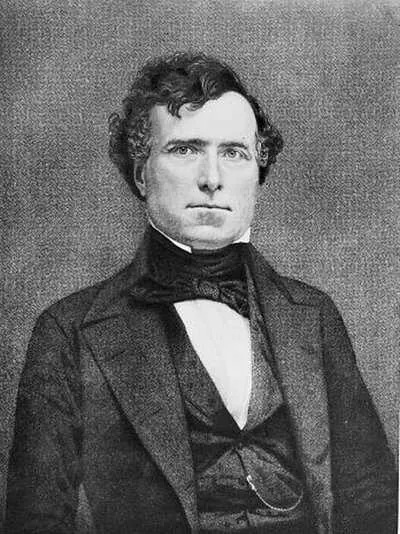
Franklin Pierce is a figure in American History who plays a huge role in the years leading to the Civil War. However, he is not someone that is referenced often among the events that lead to the war. That designation lies with another president yet to be mentioned on this list.
Franklin was the second to last American President before the Civil War in 1861. He served as the 14th President of the United States and had some intense beliefs when it came to the abolitionary movement.
He also was stone cold drunk. That doesn't automatically make him a bad guy; his drinking was more of a self-medicating pastime. (While on the way to Washington to take the Presidency, the train he was traveling in had an accident and his young son was killed in front of him and his wife)
The grief from his son's death greatly affected the young President who after taking office seemed to become a different person in the years after. Democrats of his time are not what they are in today's American political system.
His kind of party was one who endorsed the continuation of slavery and the passage of slavery laws such as the Fugitive Slave Act. It should be noted that the positions of American political parties would shift back and forth over the next hundred years.
He was someone who truly thought that the abolition of slavery would divide the country rather than unite. It's these beliefs and positions during his Presidency that does more harm than good in the years leading to the breakout of the Civil War.
As a result, most of the tension about state rights, slavery, and statehood only contributed to the war that would consume the country by 1861. Pierce would go on to annoy those in his own party. They would decide not to endorse him for a second term in 1856.
Pierce's folly was in his constant attempt to compromise on the position of slavery that was becoming harder and harder to keep neutral. His support over the Kansas-Nebraska Act would go on to alienate Democrats in the North, and then the violence that erupted in the Kansas territory (later known as Bleeding Kansas) did little to his political reputation.
The act would effectively overturn the existing statute put in place by the Missouri Compromise which stipulated an even creation of slave and free states based off of designated border of Missouri (which acted as the 'north/south' border) state line. This only added to his vulnerability in securing the nomination.
His heart may have been in the right place; but when the heart is concerned more with keeping a breaking country from tearing, instead of mending the tear, any other remedy would not be effective. Unfortunately for Pierce, his attempts only left the country that much closer to open conflict.
4. Warren G Harding
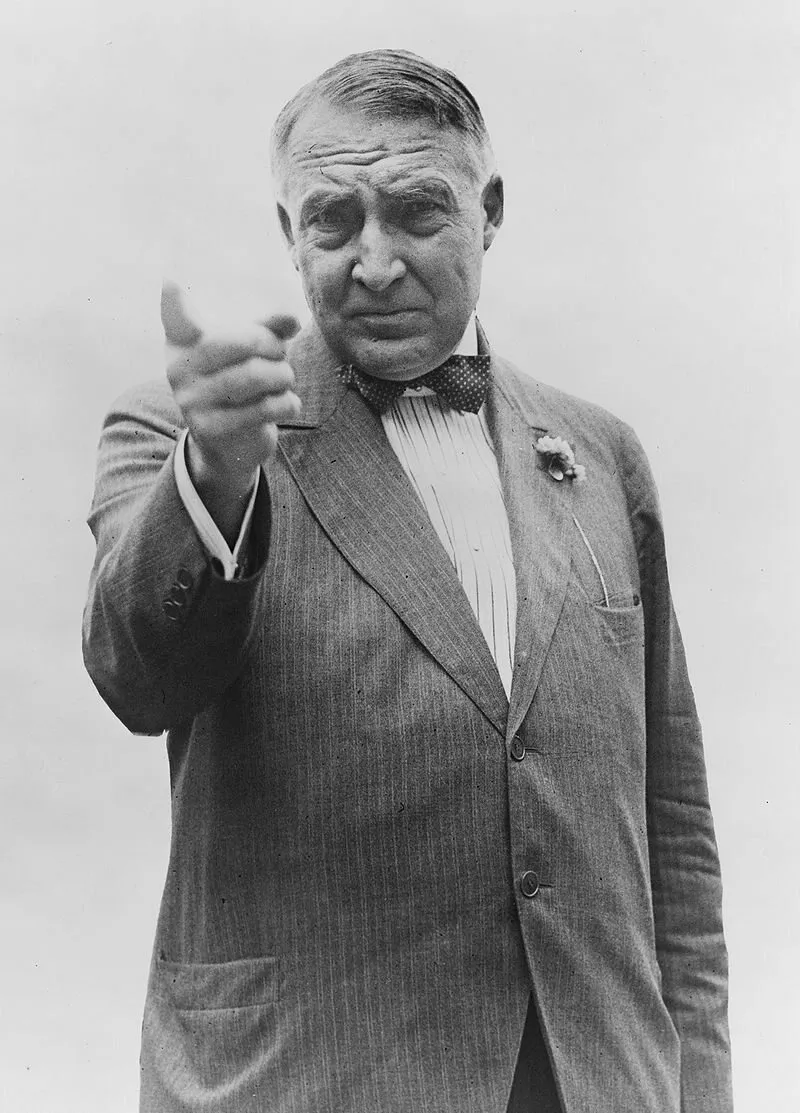
We've all had friends like Warren G. Harding. He was the kind of person who always loved doing things for and with his friends. But when your friends are crooks who meet you in the kitchen at the White House when no one is watching, it may cause a bit of a scandal.
When you're President of the United States, those friends can be liabilities; especially if they have questionable pasts. What puts Harding at the bottom of the worst is mainly over two events.
First, the Teapot Dome Scandal, and then his numerous affairs with other women. The scandal is most likely the worst corruption in Washington until the Watergate Scandal with Richard Nixon in 1974.
Harding's then-Secretary of the Interior Albert Fall had essentially taken four locations in Wyoming and California respectively, and leased them at a lower rate than using competitive rates. These locations were being used as reserves for petroleum by the Navy.
What made this such a huge deal is that he did this generally when leasing land, there would be an opportunity for other interested parties to bid for the best rate in order to win the lease. But Fall decided to forgo the bidding and just lease out directly to two companies barring others from the opportunity.
The companies were friends of the Secretary while he took in bribes for the leases. Fall would end up going to prison for his involvement in the scandal; becoming the first cabinet member in American History to be tried, and convicted of a crime. He would later serve time in jail.
The entire scandal completely undermines his administration and never really recovers. The investigations would later lead to Congress getting the ability to call tax records for elected officials; including presidents. Donald Trump remains the only president who has been able to not release any kind of tax returns to date.
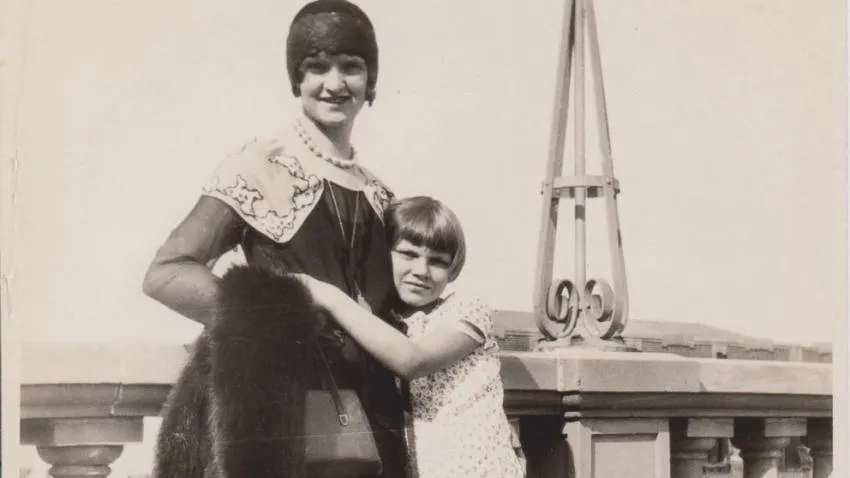
Harding also had some history with the ladies over his lifetime. A few well-known mistresses, in particular, Nan Britton wrote a tell-all book about her time with the President. In it, she claimed he was the father of her daughter Elizabeth and that he had been secretly supporting them. Harding's saving grace is that he didn't live to see these scandals come to light.
He died in 1923 after complaining of an ailment in his stomach. Rumors persisted over the years that his death was a result of foul play. While never proven, the story that Harding met his demise by non-natural means continues to this day. Over the next 50 years, more would be revealed about the women in Harding's life.
3. Andrew Johnson
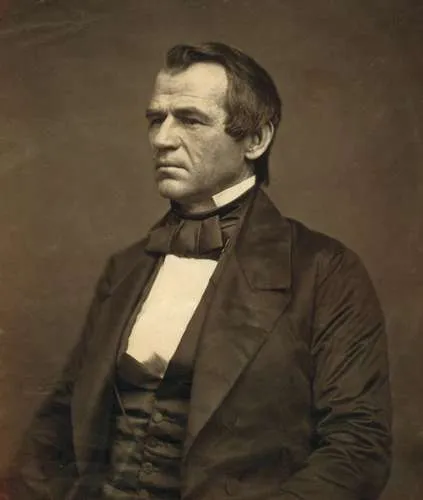
To be fair, anyone who had to come after a guy like Abraham Lincoln would probably be looked down on. But there was more to Andrew Johnson.
He was the only Southern Senator who stayed loyal to the Union after the Civil War began. He was chosen to be Lincoln's Vice President because of this very fact. His being on the ticket could show voters a sense of unity in hopes of the ending of the war.
April of 1865 changed everything though. With Lincoln shot, his role had suddenly changed. When it was later revealed that he too was included in the plot behind the assassination of the rest of the cabinet; a true conspiracy was afoot.
But after Lincoln's death and Johnson settled into steering the remainder of the Lincoln term; he began to show some true colors. And he was not shy about his racism either.
He was viewed as a sympathizer of the Southern states; attempting to broker deals of the Reconstruction to be favorable to them. He would have obstacles and issues with Congress, blocking the things he tried to push through.
On the issue of re-admittance of the southern states back into the Union, Johnson defied the cabinet and the Congress by allowing the states to return with an apology and promise directly to him as Commander and Chief.
He would be stubborn on issues, clashing with the remaining cabinet of the Lincoln administration. His eventual impeachment would be the pinnacle of his disputes with Congress.
In the end, he was the wrong guy for the time, a leader who had other feelings and leanings that were not in line with the overall message of the administration. Reconstruction would become more than just difficult for newly freed slaves; it would set them back 100 years.
2. Woodrow Wilson
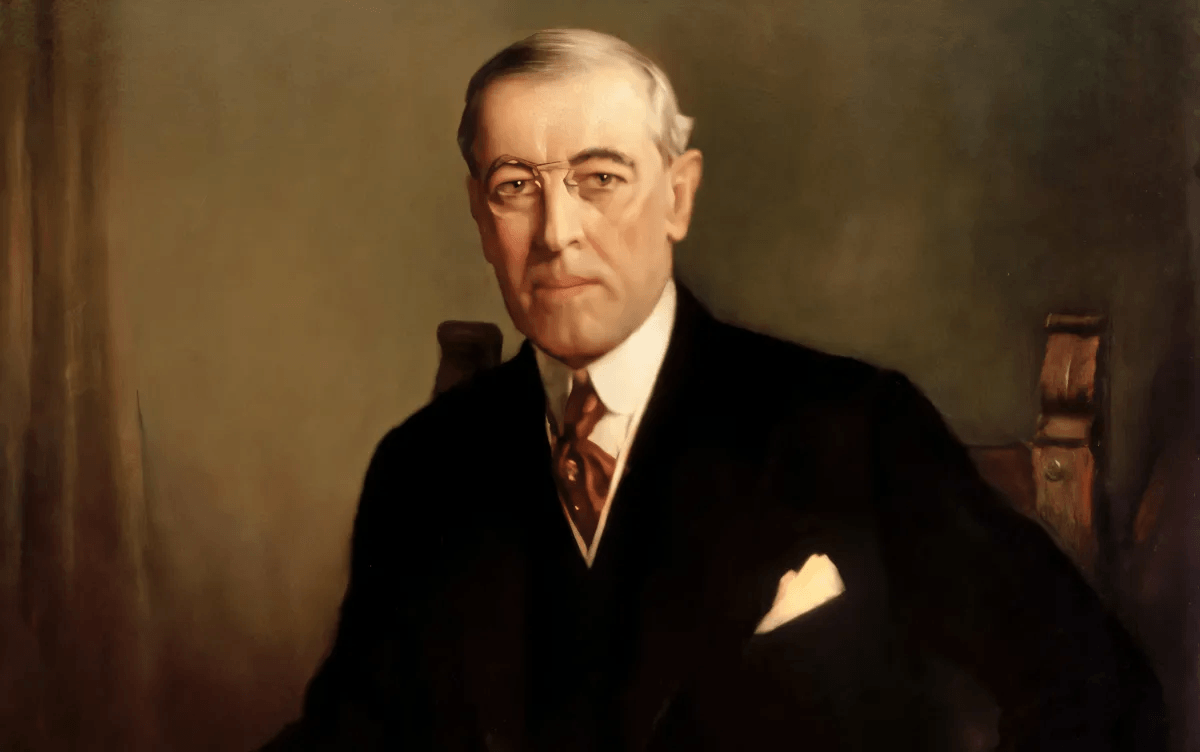
The feelings on where Wilson should be placed in the list of best and worst is dependent on what part of his time in office, you're focusing on.
Here, the positives: Keeping the US out of WWI until 1917, and the spearheading in the creation of the League of Nations, just don't really outweigh the negatives.
Wilson was a supporter of racial segregation and supremacy. The endorsing of racist films like A Birth of a Nation from 1915 (he called it "writing history with lighting"). His connection with racial supremacy is still controversial today. As the former head of Princeton University, students for years have been protesting the continuation of keeping his image around while not referencing his past ties to racism.
The complete ignorance of the H1N1 Influenza pandemic was made worse by his orders to ship more troops to Europe in the last year of the war. This would make the disease spread faster, leading to the deaths of up to 500 million people worldwide. Even Wilson himself would be struck by the disease while overseas during the peace talks at the end of the war. Wilson's choice to keep American Troops on boats to Europe is probably one of the worst decisions in World War One.
But when the war ended and Wilson returned home, despite being in deteriorating health, he was determined to get Congress to go with his proposal of a League of Nations. (It is speculated that Wilson's bout with the Spanish Flu did more harm to his body and mind than originally thought and may have led to the stroke he has once back in America) The League was to be a forum of sorts with the representatives of different countries to prevent another outbreak of war on the scale of World War One.
While the rest of the world (the Allies) were in support, Wilson did not have the support in his own country. America at the time was extremely isolationist and did not want to be sucked into another conflict across the Atlantic.
Wilson deciding he needed to gain the support of the people, traveled the country nonstop against doctors' orders. He would then suffer a massive stroke; effectively making him unable to serve as Commander in Chief.
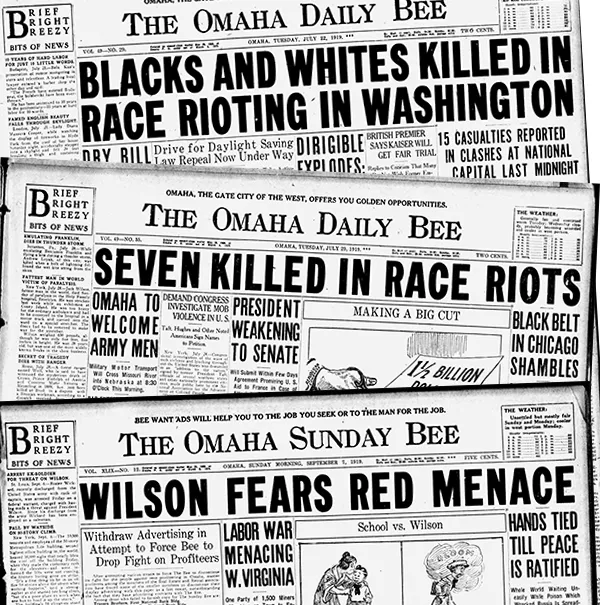
Let's be clear, his illness is not why he is on this list. His inability to lead from the end of 1918 and throughout the year 1919 is why he's on the list. The year 1919 is now remembered as another name: Red Summer.
Red Summer was the bloodiest year for Black Americans since the Civil War. The year was full of incidences of violence against Blacks by white supremacists throughout the country. No part of the country was untouched.
Black soldiers returning home from World War One would be among the victims of the violence. Soldiers, who while fighting overseas never experienced any racial discrimination, and treated equally by European soldiers and commanders.
Communities were destroyed, the number of deaths inaccurate to coverup the extent of the carnage, all occurred on and during Wilson's sickness.
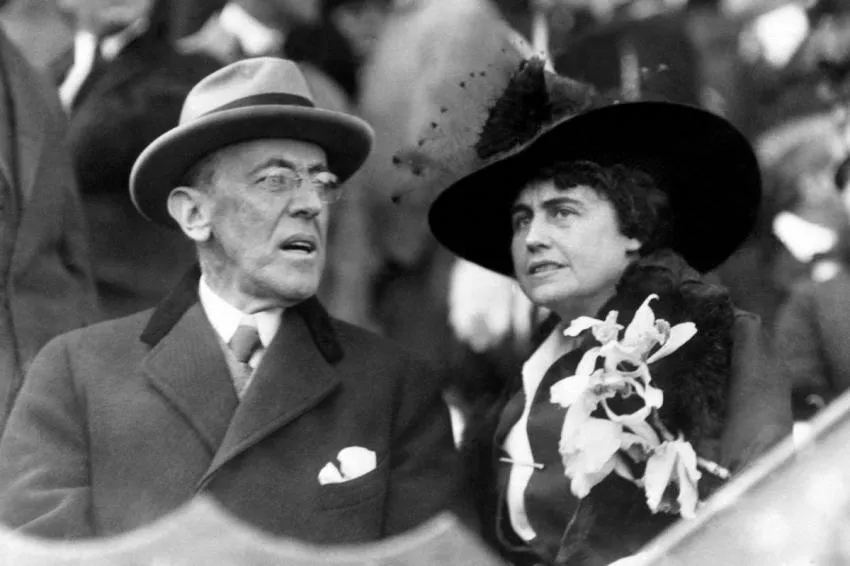
During this time, a coverup in the White House was unfolding. Edith Wilson, Woodrow's wife would not let anyone but his doctor and head usher near the President at this time. She was in total control of the situation. One that probably should have been handled with his resignation as President.
But Edith was more concerned with the passage of the League of Nations for her husband's legacy than what was actually happening outside the White House.
1. James Buchanan
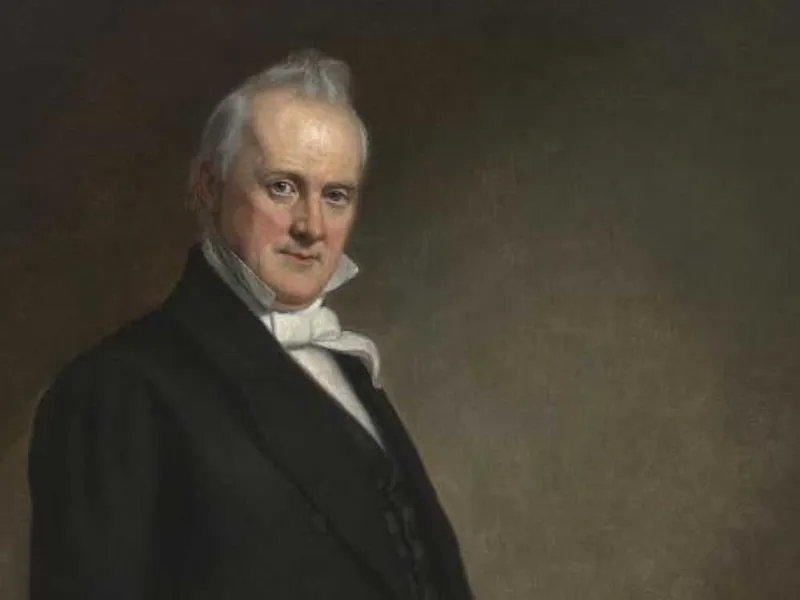
Known mostly for being the last American President before the Civil War; James Buchanan is generally considered the worst of all time. It is his role in the months and weeks leading up to the Civil War that some historians see as close to treason.
In his four years as President (1856-1860), he did little to ease tension on the issue of slavery. Because he was more of a states' rights kind of President, he would not do much at the federal level.
When the election of 1860 came around, Buchanan's actions or lack thereof alienated even those of his own party. He would lose the Democratic nomination to Stephen Douglas.
With his party abandoning him, his last few months in office were filled with a lot of nothing. Abraham Lincoln wins the Presidency in 1860, signaling to the Southern states that the abolishing of slavery was imminent.
By admitting that the South could not leave the union; only to also say that the federal government didn't have the ability to prevent it, gave the South the excuse it needed. South Carolina would succeed first.
Any attempt that he would try would have no success, and more states succeeded. His legacy would forever be tainted by his non-action in keeping the union intact. When Lincoln takes office in 1861, the stars had aligned and the war was all but inevitable.
So how does Trump stack up next to these five?
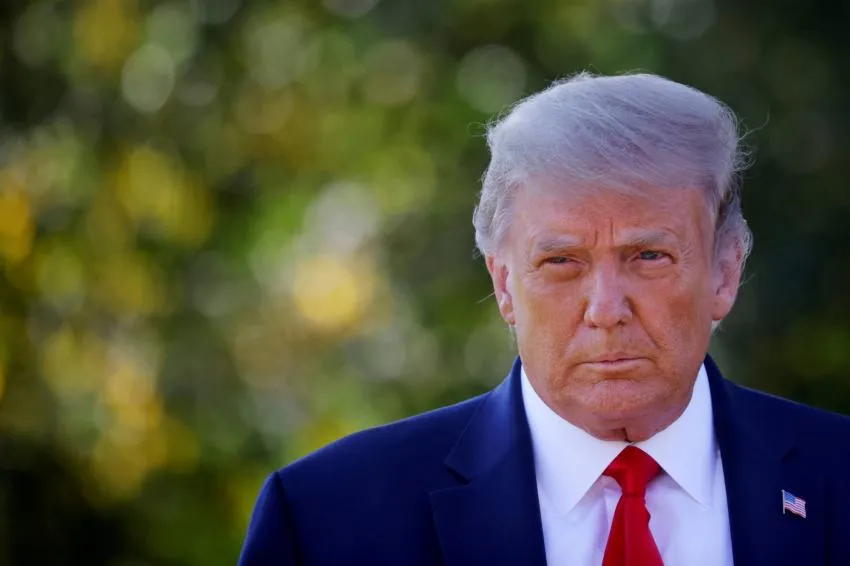
So where could Trump end up? My bet is that he'll be something like Woodrow Wilson, admired by some, revered by others, and reviled by the rest. When it comes to history, perspective is a relative thing.
But in time perspectives change and so do the opinions of others. Trump's mark on the presidency is definitely one unlike others, but the final verdict won't be known for years to come.
Opinions and Perspectives
The parallels between these historical presidencies and modern politics are striking.
Buchanan's failure to act decisively makes him deserving of the worst president title.
Pierce's drinking seems like a symptom rather than the cause of his failures.
The article makes me wonder about how future historians will judge current leaders.
It's fascinating how many of these presidents had potential but failed in crucial moments.
The section about Buchanan feels a bit oversimplified. There were many factors leading to the Civil War.
The comparison between these historical figures and modern presidents is enlightening.
Interesting that most of these presidents served at pivotal moments in American history.
Really puts into perspective how crucial presidential leadership is during times of crisis.
Johnson's treatment of former Confederate states was basically a betrayal of Lincoln's legacy.
The details about Pierce's son's death add important context to his presidency.
Wilson's handling of the Spanish Flu pandemic was criminally negligent.
Buchanan's failure to prevent the Civil War overshadows everything else about his presidency.
Pierce's compromise attempts remind me of modern politicians trying to please everyone.
The article downplays Wilson's international achievements a bit too much.
Johnson's impeachment seems almost inevitable given his clashes with Congress.
The Teapot Dome scandal really set the precedent for investigating presidential corruption.
Fascinating how many of these presidencies were defined by what they didn't do rather than what they did.
Pierce's drinking seems more sympathetic when you consider what happened to his son.
Hard to imagine a president today getting away with what Harding did with those oil leases.
The article doesn't mention how Buchanan's experience as Secretary of State might have influenced his presidency.
Johnson's racism wasn't unusual for his time, but his position made it especially damaging.
Harding's story reminds me why we need strong anti-corruption measures in government.
The fact that Pierce couldn't even get his party's nomination for a second term says a lot.
I think we need to be careful about judging 19th century presidents by 21st century standards.
Wilson's stroke and his wife's cover-up is like something out of a political thriller.
Never realized how much Harding's scandals changed government transparency rules.
The coverage of Buchanan seems a bit simplified. The situation was more complex than just his inaction.
Interesting how many of these presidents had personal issues that affected their leadership.
I'd argue Wilson's decision to send troops during the pandemic was one of the worst presidential decisions ever.
Pierce's personal tragedy is sad, but it doesn't excuse his terrible policy decisions.
The detail about Harding's White House kitchen meetings is fascinating. Imagine getting away with that today!
We should remember that historical rankings like these are always subjective and influenced by current perspectives.
Reading about Buchanan's inaction makes my blood boil. How can a president just watch the country fall apart?
The article makes a good point about how party positions have shifted over time. Today's Democrats aren't anything like Pierce's Democrats.
Not sure I agree with putting Johnson so high on the list. He was dealt an impossible situation after Lincoln.
Wilson's racism isn't discussed enough in general history classes. His policies had real devastating effects.
Can't believe Harding died before most of his scandals came to light. Talk about lucky timing.
I think modern historians are too harsh on Pierce. He was trying to prevent war, even if his methods were misguided.
The Red Summer during Wilson's presidency deserves more attention. It's a shameful chapter that's often overlooked.
Anyone else find it ironic that Johnson was chosen as VP to unite the country but ended up being so divisive?
You have to consider the historical context though. What we consider scandals today might have been viewed differently then.
The comparison between Harding's scandals and Watergate seems a bit forced. They were very different situations.
I didn't know about Edith Wilson basically running the country during her husband's illness. That's quite a significant detail.
Interesting how many of these presidents served right before or after major conflicts. Timing really is everything in leadership.
Actually, Pierce's actions absolutely worsened sectional tensions. The Kansas-Nebraska Act was a disaster that accelerated the path to war.
That's not really fair to Pierce. He was dealing with an impossible situation as the country was heading toward civil war.
Fascinating how many of these presidents faced major crises that defined their legacies. Makes you wonder if they were truly bad or just unlucky.
The article glosses over how Buchanan was likely gay. That personal context might explain some of his isolation and ineffectiveness.
I actually think Johnson deserves to be ranked worse than Wilson. His sabotage of Reconstruction had consequences that lasted generations.
Never knew about Pierce's drinking problems. Makes you wonder how many other presidents had similar issues we don't know about.
Really disagree about Wilson being second worst. His creation of the Federal Reserve and progressive reforms were significant achievements.
The Teapot Dome scandal under Harding feels like small potatoes compared to modern political scandals.
I'm surprised Andrew Jackson isn't on this list. The Trail of Tears seems worse than some of these other presidential actions.
The parallel between Wilson's handling of the Spanish Flu and modern pandemic responses is fascinating. Seems we didn't learn much from history.
What strikes me most about Buchanan is his complete lack of leadership when the country needed it most. How do you just sit back and watch the union dissolve?
I find it interesting how Pierce's personal tragedy with his son's death seemed to impact his presidency. It's a reminder that these leaders were human too.
